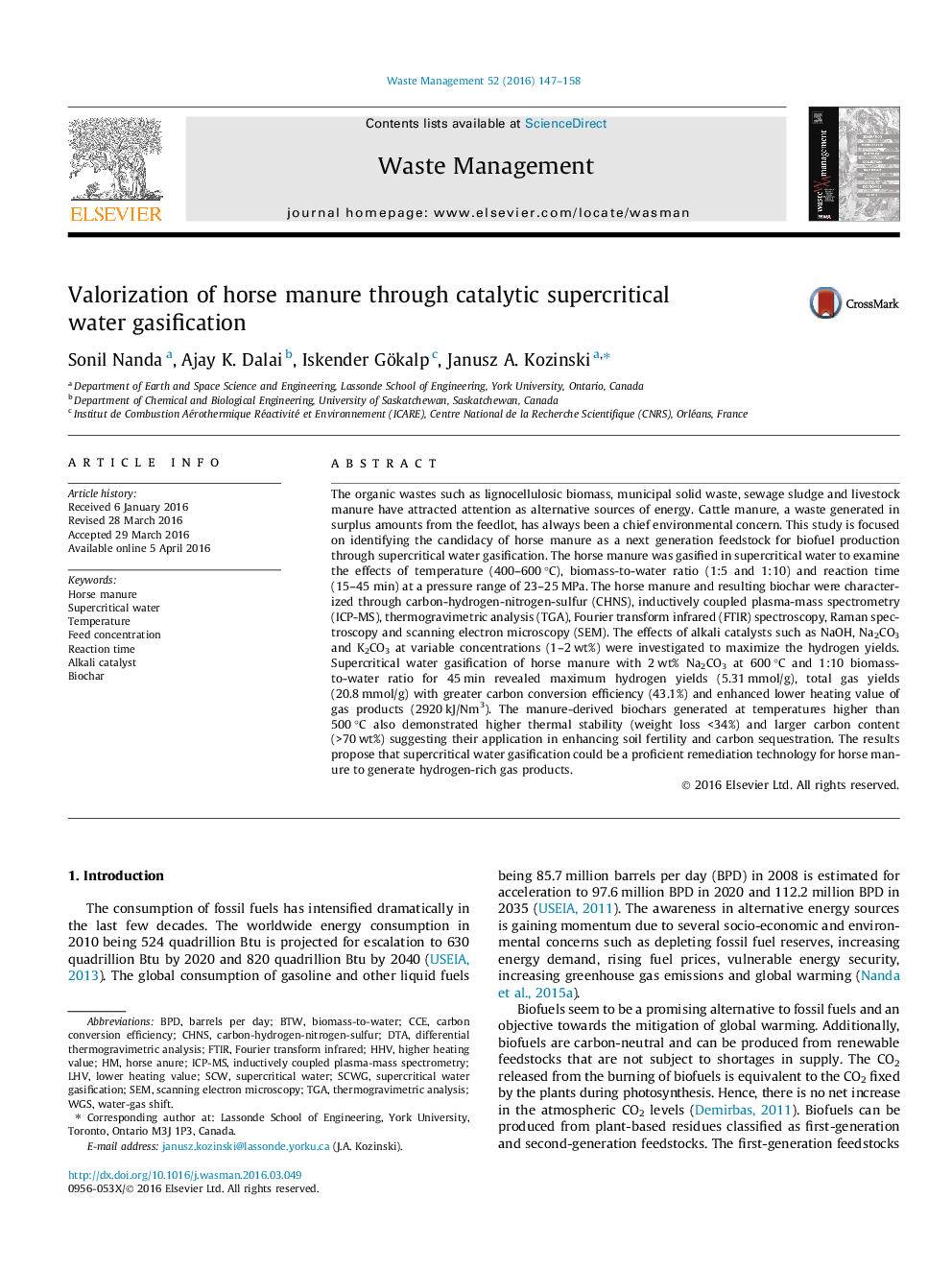| کد مقاله | کد نشریه | سال انتشار | مقاله انگلیسی | نسخه تمام متن |
|---|---|---|---|---|
| 4471237 | 1622634 | 2016 | 12 صفحه PDF | دانلود رایگان |
• Catalytic gasification of horse manure in supercritical water to produce hydrogen.
• Temperature, feed concentration, reaction time and alkali catalysts impact syngas.
• H2 yields enhanced at 600 °C, 1:5 biomass-to-water ratio and 45 min at 23–25 MPa.
• H2 yield maximized at 2 wt% catalyst loading and ascended as NaOH < K2CO3 < Na2CO3.
• High temperatures (600 °C) resulted in more gas yields and biochar aromatization.
The organic wastes such as lignocellulosic biomass, municipal solid waste, sewage sludge and livestock manure have attracted attention as alternative sources of energy. Cattle manure, a waste generated in surplus amounts from the feedlot, has always been a chief environmental concern. This study is focused on identifying the candidacy of horse manure as a next generation feedstock for biofuel production through supercritical water gasification. The horse manure was gasified in supercritical water to examine the effects of temperature (400–600 °C), biomass-to-water ratio (1:5 and 1:10) and reaction time (15–45 min) at a pressure range of 23–25 MPa. The horse manure and resulting biochar were characterized through carbon-hydrogen-nitrogen-sulfur (CHNS), inductively coupled plasma-mass spectrometry (ICP-MS), thermogravimetric analysis (TGA), Fourier transform infrared (FTIR) spectroscopy, Raman spectroscopy and scanning electron microscopy (SEM). The effects of alkali catalysts such as NaOH, Na2CO3 and K2CO3 at variable concentrations (1–2 wt%) were investigated to maximize the hydrogen yields. Supercritical water gasification of horse manure with 2 wt% Na2CO3 at 600 °C and 1:10 biomass-to-water ratio for 45 min revealed maximum hydrogen yields (5.31 mmol/g), total gas yields (20.8 mmol/g) with greater carbon conversion efficiency (43.1%) and enhanced lower heating value of gas products (2920 kJ/Nm3). The manure-derived biochars generated at temperatures higher than 500 °C also demonstrated higher thermal stability (weight loss <34%) and larger carbon content (>70 wt%) suggesting their application in enhancing soil fertility and carbon sequestration. The results propose that supercritical water gasification could be a proficient remediation technology for horse manure to generate hydrogen-rich gas products.
Figure optionsDownload as PowerPoint slide
Journal: Waste Management - Volume 52, June 2016, Pages 147–158
